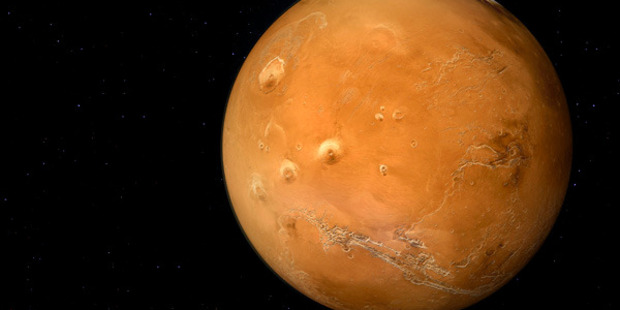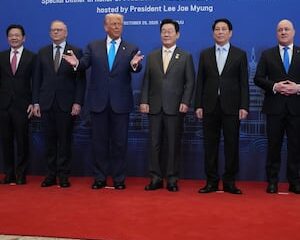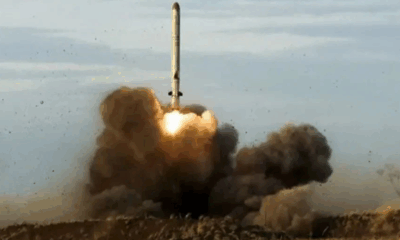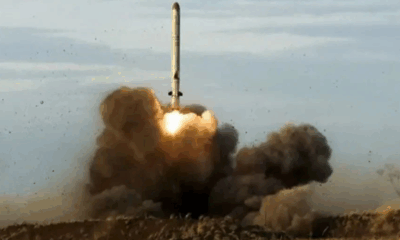Science
Global Events Reflect Humanity’s Complex Struggles This Week

This week has been marked by significant global events that highlight the complexities of human existence. NASA announced the discovery of what it considers the clearest indication of ancient life on Mars, igniting interest in the possibility of extraterrestrial life. Concurrently, a troubling milestone was reached: there are now more obese children worldwide than underweight children, according to the World Health Organization.
In the Middle East, missile strikes have interrupted peace negotiations, raising concerns about ongoing conflicts in the region. Over Europe, military activity has intensified, with drones and fighter jets patrolling the skies, a stark reminder of the geopolitical tensions that persist. Meanwhile, in the United States, another political assassination has shocked the nation, further complicating the landscape of democracy and freedom.
Reflections on Humanity’s Nature
These events prompt reflection on the nature of humanity. If beings from Mars were to visit Earth, one might wonder how they would perceive our actions and beliefs. Religion, which preaches love and compassion, often finds itself at the center of conflicts. Despite the fundamental principle of “loving thy neighbor,” violence and war frequently arise in its name.
Food security presents another paradox: while some individuals face hunger, others grapple with obesity. According to the World Bank, the global imbalance in food distribution underscores systemic issues that contribute to these disparities. Democracy, hailed as a cornerstone of freedom, is tarnished by incidents of political violence, leaving many to question its integrity.
The human tendency to engage in conflict is not new. Throughout history, societies have battled for resources, territory, and survival. Yet, unlike animals that fight primarily for survival, humans often engage in conflicts simply because of differing opinions. This social behavior can have both positive and negative consequences, leading to progress in some areas while fostering division in others.
The Role of Social Media
The rise of social media has further complicated these dynamics. Platforms designed to connect people can also amplify divisive rhetoric, creating echo chambers that exacerbate tensions. This raises an important question: how would we explain our societal complexities to an extraterrestrial visitor?
If a spacecraft were to land tomorrow, who would we choose to represent humanity? Would it be political figures like Donald Trump or Xi Jinping? Or perhaps spiritual leaders like The Pope? The answer is uncertain, reflecting the diverse and often conflicting nature of our society.
Ultimately, the question may be less about whom we would meet and more about our place in the universe. The existential query of whether there is “room for us” elsewhere reflects a desire for belonging and understanding in an increasingly chaotic world. As humanity navigates these challenges, the need for compassion, dialogue, and connection remains more crucial than ever.
-

 Sports2 months ago
Sports2 months agoNetball New Zealand Stands Down Dame Noeline Taurua for Series
-

 Entertainment2 months ago
Entertainment2 months agoTributes Pour In for Lachlan Rofe, Reality Star, Dead at 47
-

 Entertainment3 weeks ago
Entertainment3 weeks agoNew ‘Maverick’ Chaser Joins Beat the Chasers Season Finale
-

 Sports2 months ago
Sports2 months agoSilver Ferns Legend Laura Langman Criticizes Team’s Attitude
-

 Politics4 weeks ago
Politics4 weeks agoNetball NZ Calls for Respect Amid Dame Taurua’s Standoff
-

 Entertainment2 months ago
Entertainment2 months agoKhloe Kardashian Embraces Innovative Stem Cell Therapy in Mexico
-

 World3 months ago
World3 months agoPolice Arrest Multiple Individuals During Funeral for Zain Taikato-Fox
-

 Sports3 months ago
Sports3 months agoGaël Monfils Set to Defend ASB Classic Title in January 2026
-

 Entertainment1 month ago
Entertainment1 month agoTyson Fury’s Daughter Venezuela Gets Engaged at Birthday Bash
-

 Sports1 month ago
Sports1 month agoHeather McMahan Steps Down as Ryder Cup Host After Controversy
-

 World2 weeks ago
World2 weeks agoSevere Winds Hit New Zealand, Over 100 Flights Canceled
-

 Entertainment1 month ago
Entertainment1 month agoTyson Fury’s Daughter Venezuela Gets Engaged at Birthday Bash





















